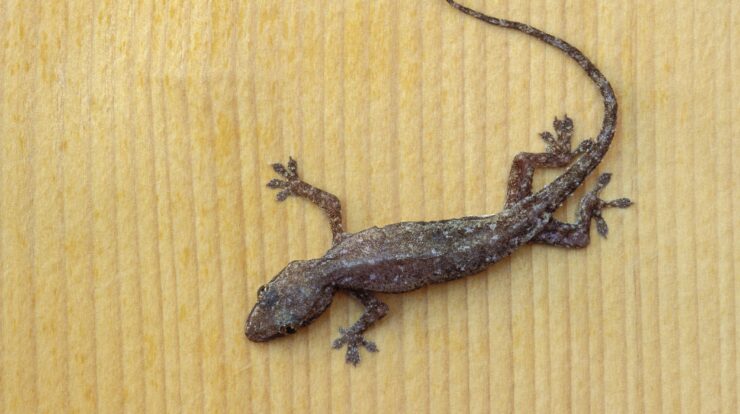
Lizards, though mostly harmless and a part of our ecosystem, can be a nuisance when they enter our homes. They are often seen scurrying across walls and ceilings, which may create a feeling of discomfort or disgust for some people. If you are someone who finds lizards unwelcome in your living space, you’re likely looking for ways to get rid of them safely and effectively. In this post, we will explore both professional and DIY home remedies to rid your home of these uninvited guests.
Understanding Lizards and Why They Enter Homes
Lizards are cold-blooded reptiles commonly found in warm, tropical climates. The most common types of lizards seen in homes are house geckos, which are generally harmless and even help by eating insects like mosquitoes, flies, and moths. However, their presence can still be unpleasant for many people.
Lizards typically enter homes in search of food, warmth, or shelter. Homes with an abundance of small insects, such as ants and flies, tend to attract lizards. Additionally, lizards are attracted to warm and humid areas, making kitchens, bathrooms, and basements prime locations.
Signs You Have a Lizard Problem
Before diving into the methods to eliminate lizards, it’s important to recognize the signs of an infestation:
- Sightings: The most obvious sign is seeing lizards in or around your home, especially near lights or windows.
- Droppings: Lizard droppings are small, black, and have a white tip, often confused with mouse droppings.
- Eggs: Female lizards may lay eggs inside your home. These are small, white, and oval-shaped.
How to Get Rid of Lizards: A Step-by-Step Approach
1. Remove Their Food Source
One of the simplest and most effective ways to get rid of lizards is to eliminate their food supply. Lizards feed on small insects, so reducing the insect population in your home will make it less attractive to them.
- Clean Up Leftovers: Crumbs, food particles, and open containers can attract insects, which in turn attract lizards.
- Use Insect Repellents: Consider using natural insect repellents like citronella, neem oil, or eucalyptus to keep bugs at bay.
- Seal Trash Cans: Ensure your trash cans are sealed tightly to prevent flies and other pests from becoming a food source for lizards.
2. Keep the House Clean
Lizards tend to thrive in dirty or cluttered environments. Regular cleaning can make your home less hospitable to these reptiles.
- Vacuum Regularly: Vacuum floors, carpets, and rugs frequently to remove food crumbs and other debris.
- Declutter: Remove stacks of papers, magazines, or cardboard boxes that can serve as hiding spots for lizards.
- Clean Dark Corners: Lizards often hide in dark, damp areas such as behind furniture or appliances, so make sure to clean these areas often.
3. Block Their Entry Points
One of the most crucial steps in preventing a lizard infestation is to block their access to your home.
- Seal Gaps: Check for any cracks or holes in doors, windows, or walls, and seal them with caulk.
- Install Mesh Screens: Place mesh screens on windows, vents, and doors to prevent lizards from entering.
- Weather Stripping: Ensure that doorframes and window frames are properly sealed. Install weather stripping if needed.
4. Use Lizard Repellents
There are several natural repellents that you can use to deter lizards from your home.
- Pepper Spray: Lizards dislike the smell of pepper. Mix black pepper powder with water and spray it in areas where you see lizards.
- Garlic and Onion: These strong-smelling ingredients act as natural repellents. Place cloves of garlic or slices of onion near entry points or in corners where lizards frequent.
- Eggshells: After using eggs, save the shells and place them near windows, doors, and other entry points. Lizards tend to avoid the smell of eggshells as it resembles the presence of a predator.
- Coffee and Tobacco Balls: Mix coffee powder with crushed tobacco to create small balls. Place them in areas where lizards are commonly found. This mixture is toxic to lizards and acts as a repellent.
- Naphthalene Balls: The strong smell of naphthalene balls (mothballs) keeps lizards away. Place them in corners, under furniture, or in cabinets to prevent lizards from nesting.
5. Homemade Traps
You can also make your own lizard traps using simple materials.
- Sticky Traps: Create a sticky surface using tape or glue traps to catch lizards. Place these traps in high-traffic areas like windowsills or behind furniture. Once the lizard is stuck, you can carefully remove it and release it outdoors.
- Bottle Trap: Use an empty plastic bottle to create a lizard trap. Cut off the neck of the bottle and place food like insects or fruits inside to lure the lizard. Once it enters the bottle, it will have difficulty escaping.
6. Lower the Temperature
Lizards, being cold-blooded animals, prefer warm environments. Lowering the temperature in your home can make it less appealing to them.
- Use Air Conditioning: Keeping your home cool with air conditioning can discourage lizards from staying inside.
- Cooler Lighting: Switch to cooler lighting, such as LED lights, instead of incandescent bulbs. Lizards are attracted to heat, and cooler lights will help keep them away.
7. Use Ultrasonic Devices
Ultrasonic devices emit high-frequency sounds that are unpleasant for pests like lizards. These devices are generally safe for humans and pets and can be placed in areas where lizards are commonly seen.
Natural Home Remedies to Get Rid of Lizards
If you prefer a more natural approach, several home remedies can help you eliminate lizards without the use of chemicals or traps.
1. Lemongrass Oil
Lemongrass oil is an effective natural repellent for lizards. The strong smell of lemongrass can irritate lizards, prompting them to leave the area.
How to Use:
- Mix a few drops of lemongrass oil with water and spray it in areas where lizards are seen.
- Place cotton balls soaked in lemongrass oil near windows and doorways.
2. Cayenne Pepper
Cayenne pepper has a strong, pungent smell that lizards find unpleasant. Using cayenne pepper as a deterrent can keep lizards away from your home.
How to Use:
- Mix cayenne pepper powder with water to make a spray.
- Spray it in the corners, on windowsills, and near doors where lizards are commonly seen.
3. Turmeric Powder
Turmeric is a versatile spice with many uses, one of which is as a natural lizard repellent. Lizards dislike the smell of turmeric, and its strong scent will keep them at bay.
How to Use:
- Sprinkle turmeric powder in the areas where lizards frequently appear.
- Alternatively, mix turmeric powder with water to create a paste and apply it to entry points.
4. Onion and Garlic Juice
As mentioned earlier, lizards detest the smell of garlic and onions. You can make a repellent spray using their juices.
How to Use:
- Blend onions and garlic with water to create a juice mixture.
- Spray it around windows, doors, and other entry points to deter lizards.
Preventing Lizards from Returning
Once you’ve successfully eliminated lizards from your home, it’s important to take preventative measures to ensure they don’t come back.
- Maintain Cleanliness: Continue to keep your home clean and free of clutter to prevent insects and lizards from returning.
- Seal Entry Points: Regularly inspect your home for cracks, gaps, and holes, and seal them promptly to prevent lizards from entering.
- Install Motion-Activated Lights: Lizards are attracted to light. Installing motion-activated lights near windows and doors can discourage them from staying near your home.
- Trim Plants: Keep plants, especially those near windows and doors, well-trimmed. Lizards often use plants as hiding spots before entering homes.
To Sum Up…
Getting rid of lizards from your home doesn’t have to be a challenging task. With a combination of cleanliness, home remedies, and some strategic placement of repellents, you can eliminate lizards and prevent them from returning. Whether you opt for natural solutions like pepper spray or homemade traps, it’s important to remain consistent and vigilant to maintain a lizard-free home.
However, it’s also worth noting that lizards are beneficial to the ecosystem as they help control insect populations. If you can tolerate their presence outdoors, they can act as a natural insect control method around your home. If you decide to remove them, do so humanely by using non-toxic methods.






